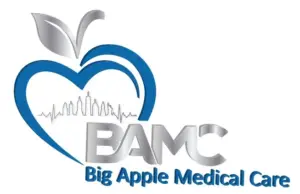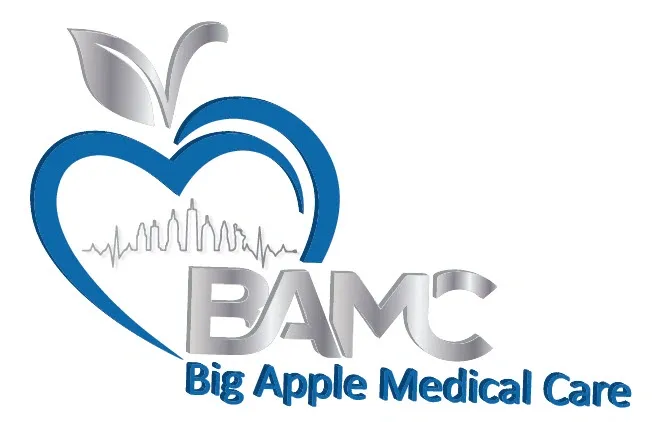Why Is Prenatal Care Important for a Healthy Pregnancy?

Prenatal care serves as the foundation for a healthy pregnancy journey, offering essential monitoring and support for both mother and baby. Regular check-ups with healthcare providers help identify potential complications early, allowing for timely interventions that can prevent serious health issues. Comprehensive prenatal care significantly reduces the risk of pregnancy complications, premature birth, and low birth weight, directly contributing to better outcomes for both mother and child.
Many expectant mothers underestimate the importance of early and consistent prenatal care. Beyond routine health checks, these appointments provide valuable opportunities to address nutritional needs, manage existing health conditions, and prepare for childbirth. Prenatal visits also include screenings for genetic disorders, gestational diabetes, and preeclampsia—conditions that require prompt medical attention.
The journey through pregnancy brings numerous physical and emotional changes that benefit from professional guidance. Prenatal care provides not just medical oversight but also emotional support and education about the developing baby and upcoming life changes. This holistic approach helps ensure that mothers-to-be feel confident and prepared throughout their pregnancy experience.
The Essentials of Prenatal Care
Prenatal care serves as the foundation for a healthy pregnancy, providing critical monitoring and support throughout this important journey. Regular medical supervision helps identify potential issues early while equipping expectant mothers with necessary knowledge and resources.
Understanding Prenatal Care and Its Significance
Prenatal care encompasses comprehensive medical supervision and support during pregnancy. It involves regular check-ups, screenings, and educational guidance to monitor both maternal and fetal health.
These visits allow healthcare providers to track fetal development, assess maternal health indicators, and identify potential complications before they become serious. Blood pressure monitoring, weight checks, and various screenings form the core components of these visits.
Pre-pregnancy care also plays a vital role, addressing health concerns before conception. This might include achieving optimal weight, starting prenatal vitamins, and managing chronic conditions.
Access to quality prenatal care significantly reduces the risk of pregnancy complications. Research shows that women who receive regular prenatal care experience fewer preterm births and have healthier babies overall.
Timing and Frequency of Prenatal Visits
The first prenatal visit typically occurs within the first 8 weeks of pregnancy. This comprehensive appointment establishes baseline health measurements and includes a thorough medical history review.
For uncomplicated pregnancies, the standard schedule includes:
- Monthly visits through week 28
- Bi-weekly visits from weeks 28-36
- Weekly visits from week 36 until delivery
High-risk pregnancies may require more frequent monitoring. Factors like maternal age, pre-existing health conditions, or multiple pregnancies often necessitate additional appointments.
Early and consistent prenatal care allows for timely interventions when needed. The timing of certain screenings and tests follows a specific schedule aligned with fetal development stages.
Digital health platforms now complement in-person visits, offering pregnant women continuous support between appointments through remote monitoring options.
Health Benefits for Mother and Child
Regular prenatal care delivers significant health advantages for both mothers and babies throughout pregnancy. These benefits extend from early pregnancy monitoring to long-term positive outcomes for child development.
Monitoring Maternal Health Conditions
Prenatal visits enable healthcare providers to track vital signs and detect potential medical conditions early. Blood pressure monitoring can identify hypertension or preeclampsia before they become severe. Regular weight and nutrition assessments help maintain appropriate maternal weight gain.
Blood tests during prenatal visits screen for diabetes, anemia, and infections that might otherwise go unnoticed. Early detection of these health conditions allows for prompt intervention and management.
Women with pre-existing medical conditions like diabetes or thyroid disorders receive specialized monitoring to adjust medications and treatment plans. This careful observation helps prevent complications and ensures the health of both the mother and developing baby.
Promoting Fetal Development and Child Health
Ultrasound examinations track fetal growth patterns and development milestones. These visual assessments confirm normal anatomical development and can detect potential structural abnormalities requiring intervention.
Prenatal vitamins and nutritional guidance support optimal brain and organ development. Folic acid supplementation specifically helps prevent neural tube defects when taken during early pregnancy.
Monitoring fetal heartbeat and movement provides reassurance about the baby’s wellbeing. Healthcare providers can also:
- Assess amniotic fluid levels
- Evaluate placental function
- Track growth measurements
- Screen for genetic conditions
These assessments contribute to delivering a healthy baby and establish a foundation for positive child health outcomes.
Preventing and Addressing Pregnancy Complications
Regular prenatal visits allow for timely identification of pregnancy complications like preterm labor, placental abnormalities, or gestational diabetes. Early detection enables prompt medical intervention, potentially preventing serious outcomes.
Screening tests identify potential issues with the placenta, umbilical cord, or amniotic fluid. Healthcare providers can then develop management strategies to address these concerns.
Education during prenatal care helps mothers recognize warning signs requiring immediate attention. Women learn to identify symptoms like decreased fetal movement, vaginal bleeding, or severe headaches that might indicate complications.
Some pregnancy complications require specialized care from maternal-fetal medicine specialists. Comprehensive prenatal care ensures appropriate referrals when complications arise, maximizing positive outcomes for both mother and baby.
Comprehensive Care and Support Services
Prenatal care extends beyond routine check-ups to encompass a holistic approach to maternal and fetal health. Effective prenatal care integrates medical supervision with personalized guidance and preventive screening to optimize pregnancy outcomes.
The Role of Health Care Providers
Health care providers serve as the cornerstone of prenatal care, offering medical expertise and emotional support throughout pregnancy. Obstetricians, midwives, and family physicians monitor vital signs, track fetal development, and address concerns as they arise.
Regular appointments allow providers to detect potential complications early, significantly improving outcomes for both mother and baby. The frequency of these visits typically increases as the pregnancy progresses, with monthly visits in early pregnancy advancing to weekly appointments in the final month.
Providers at facilities like Big Apple Medical Care offer personalized care plans tailored to each woman’s unique needs and medical history. Their comprehensive approach ensures that pregnant women receive consistent monitoring and timely interventions when necessary.
Nutritional Guidance and Lifestyle Adjustments
Proper nutrition forms a critical component of prenatal care, directly impacting fetal development and maternal health. Health care providers offer customized nutritional guidance based on individual needs, medical conditions, and cultural preferences.
Prenatal vitamins containing folic acid, iron, calcium, and other essential nutrients supplement dietary intake to prevent deficiencies. These supplements are particularly important during the first trimester when neural tube development occurs.
Providers also address lifestyle factors including:
- Exercise recommendations appropriate for pregnancy stage
- Sleep hygiene practices to improve rest quality
- Stress management techniques to reduce anxiety
Guidance on avoiding harmful substances such as alcohol, tobacco, and certain medications helps protect fetal development. Women are encouraged to maintain moderate activity levels while avoiding high-risk activities that could lead to falls or injury.
Prenatal Testing and Screening Importance
Modern prenatal care includes various screening and diagnostic tests to assess fetal development and identify potential concerns. The Eunice Kennedy Shriver National Institute of Child Health and Human Development has established guidelines for these essential screenings.
Early tests typically include:
- Blood typing and antibody screening
- Complete blood count
- Infectious disease screening
- Genetic carrier testing
As pregnancy progresses, additional screenings like glucose tolerance tests help identify gestational diabetes. Ultrasounds monitor fetal growth, position, and anatomical development at key stages.
Advanced screening options such as non-invasive prenatal testing (NIPT) can detect chromosomal abnormalities with remarkable accuracy. More comprehensive diagnostic procedures like amniocentesis or chorionic villus sampling may be recommended for high-risk pregnancies or when screening tests indicate potential concerns.
Frequently Asked Questions
Prenatal care encompasses a range of medical services and practices designed to monitor and support the health of both mother and baby during pregnancy. These services play a crucial role in identifying potential complications early and ensuring optimal development.
What are the key benefits of receiving prenatal care during pregnancy?
Prenatal care reduces pregnancy complications, enables early detection of health issues, provides nutritional guidance, and prepares parents for labor and delivery.
How does prenatal care contribute to the health of the mother and baby?
Regular prenatal check-ups monitor vital signs, track fetal development, screen for conditions like gestational diabetes, and address maternal health concerns before they become serious complications.
What are the different types of prenatal care available to expectant mothers?
Options include traditional obstetric care, midwifery services, group prenatal care models, high-risk specialist care, and integrative approaches combining conventional and complementary medicine.
How do prenatal vitamins impact the development of the fetus?
Prenatal vitamins provide essential nutrients like folic acid to prevent neural tube defects, iron to support blood production, calcium for bone development, and omega-3s for brain growth.
What are some common examples of prenatal care practices?
Common practices include regular doctor visits, ultrasound imaging, blood and urine tests, genetic screening, nutritional counseling, and childbirth education classes.
Why is it essential to have medical supervision throughout the course of a pregnancy?
Medical supervision allows for tracking of maternal and fetal health markers, timely intervention for complications, appropriate medication management, and personalized birth planning for optimal outcomes.







